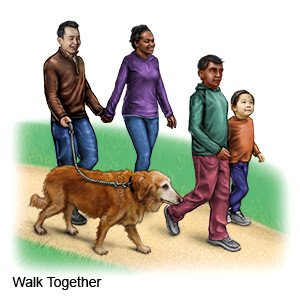Amenorrhea
Medically reviewed by Drugs.com. Last updated on Aug 4, 2025.
AMBULATORY CARE:
Amenorrhea
is the absence of menstruation (your monthly period). Primary amenorrhea means your period did not start by age 16. This is usually because of a lack of reproductive organs, such as a uterus. Breasts and other signs of puberty that usually start to develop by age 14 do not develop. Secondary amenorrhea means you stopped having regular periods for at least 3 months or irregular periods for 6 months. Amenorrhea may be a sign of a serious medical problem that needs to be treated.
 |
Common symptoms include the following:
- Hair growth on your face or over your breastbone, or bald patches
- Acne
- Pelvic pain
- Headaches
- Vision changes
- Bruises or patches of dark skin
Call your doctor or gynecologist for any of the following:
- You notice changes in your menstrual cycle, such as periods that start and stop a few times.
- Your female child is 14, has not started menstruating, and is not developing signs of puberty.
- Your female child is 16 and has developed signs of puberty, but she has not started menstruating.
- You have questions or concerns about your condition or care.
Treatment for amenorrhea
may include birth control pills to restart and regulate your periods. You may need medicines to treat medical conditions such as a thyroid or pituitary disorder, or PCOS. Surgery may fix a problem that is preventing blood from flowing through your vagina, or to remove a tumor.
Prevent or manage amenorrhea:
- Maintain a healthy weight. Low body weight, overweight, or obesity can all affect your period. Your healthcare provider can help you create a plan to reach and maintain a healthy weight.
- Eat healthy foods. Healthy foods include fruits, vegetables, whole-grain breads, low-fat dairy products, beans, lean meats, and fish. You may need to have more calcium and vitamin D if your amenorrhea is caused by low estrogen levels. Low estrogen can affect bone strength. Calcium and vitamin D work together to help build bone. Your healthcare provider or a dietitian can help you create a meal plan that has the right number of calories and nutrients for you.

- Exercise as directed. Exercise can help you build or maintain bone. Exercise can also help you lose weight if you are overweight. Ask your healthcare provider how much to exercise and which exercises are best for you. Do not exercise more than your healthcare provider recommends. Too much exercise can cause your period to stop.

- Keep a record of your monthly periods. Record the dates your period started and stopped. Also record any pain or other problems during your period.
- Manage stress. Try new ways to relax, such as deep breathing. Ask your healthcare provider for more information on stress management.
Treatment options
The following list of medications are related to or used in the treatment of this condition.
Follow up with your doctor or gynecologist as directed:
Write down your questions so you remember to ask them during your visits.
© Copyright Merative 2025 Information is for End User's use only and may not be sold, redistributed or otherwise used for commercial purposes.
The above information is an educational aid only. It is not intended as medical advice for individual conditions or treatments. Talk to your doctor, nurse or pharmacist before following any medical regimen to see if it is safe and effective for you.
Learn more about Amenorrhea
Treatment options
Care guides
Symptoms and treatments
Further information
Always consult your healthcare provider to ensure the information displayed on this page applies to your personal circumstances.
